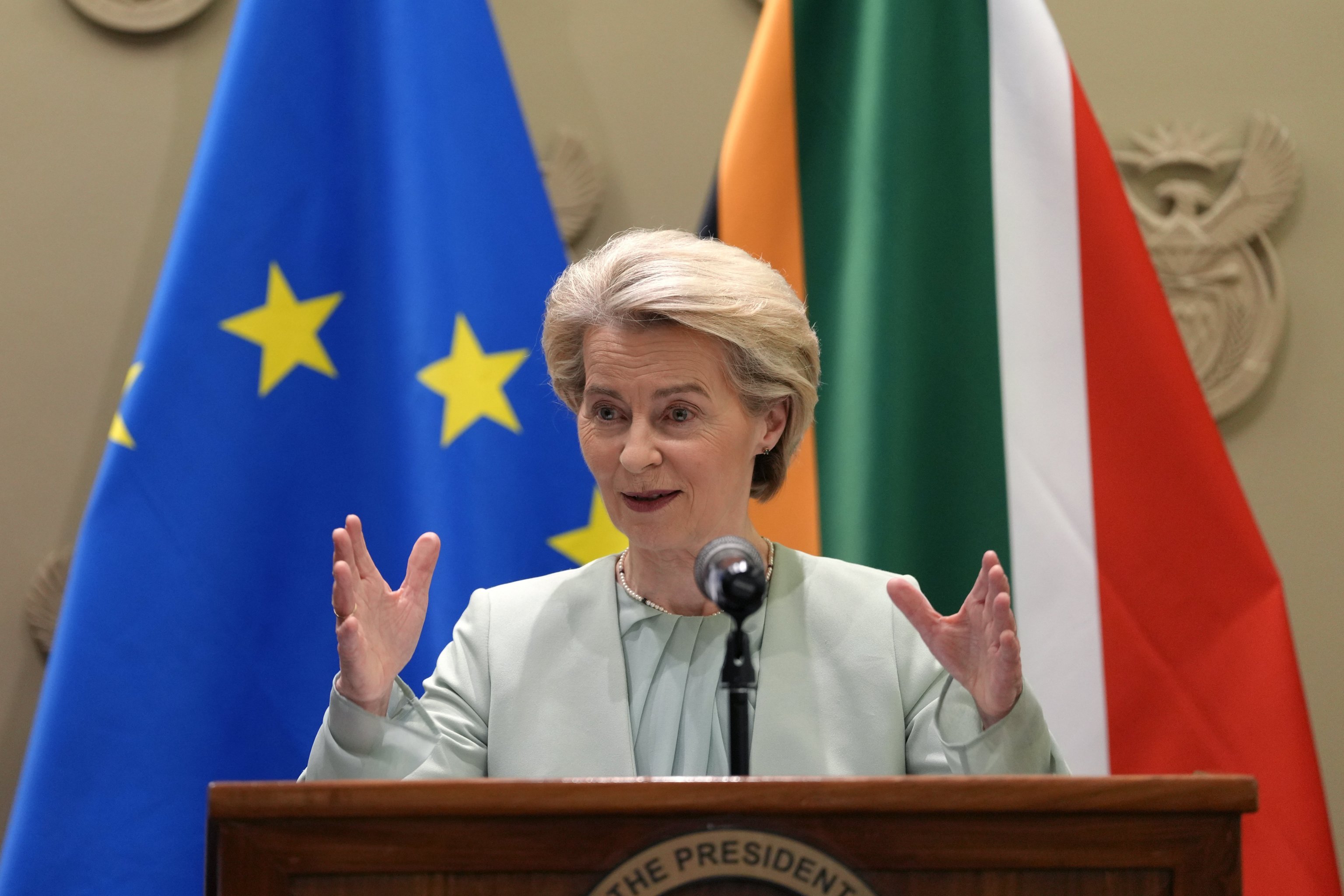A "massive investment" that must start now. "Before April" by requesting the activation of the escape clause. The so-called Defense white paper, which the European Commission will present next week and to which EL MUNDO has had access to the draft, "invites" countries to already request the budgetary flexibility that Brussels offers to start spending significantly in the military field. If the fiscal space is fully utilized, the investment could be up to 650 billion euros, a figure that the Commission itself knows will hardly be reached but highlights the effort it deems necessary.
The general outlines of the document are known when the President of the Government, Pedro Sánchez, still does not have a Defense plan. Or at least, has not made it public yet, and the text further increases the pressure already existing on Spain. The Commission is moving fast while the Spanish government has barely started meetings with parliamentary groups and is looking for a way to avoid going through Congress to spend more on Defense. Much more.
"The reconstruction of European defense requires massive investment, closer collaboration among Member States, and sustained effort over the coming years. Closing critical capability gaps and strengthening Europe's defense industrial capacity are essential elements of European defense and deterrence," states the mentioned document, which will be one of the cornerstones on which the EU's Defense strategy will be developed.
The entire text is imbued with a very evident bellicose tone. Europe is preparing to face Vladimir Putin, a threat that the Commission does not believe will diminish even if there is ultimately a peace agreement with Ukraine. "Even if a ceasefire is agreed in Ukraine, Russia is likely to continue increasing its war economy, supported by Belarus, China, the Democratic People's Republic of Korea, and Iran. A revanchist Russia is the immediate military threat to the EU. It has been massively expanding its military industrial production capacity, with an estimated expenditure in 2024 of 40% of the Russian federal budget and up to 9% of its GDP (compared to 6% in 2023) on defense," the white paper states.
"In 2025, Russia is expected to exceed defense spending of the Member States in terms of purchasing power parity. Therefore, Russia will remain a fundamental threat to Europe's security in the foreseeable future, including its more aggressive nuclear posture and the placement of nuclear weapons in Belarus," it emphasizes.
The text also advocates for "collaborative procurement" among EU countries and proposes alliances with countries that have a close relationship with the EU and others that do not. "Our cooperation with Canada has intensified and should continue to be strengthened, also to enhance transatlantic security," it states. "Norway is a full-fledged partner in EU defense programs through its contribution to the EU budget. Therefore, it should be invited to participate in flagship projects launched by the Member States," it continues.
It also suggests that a "Security and Defense partnership with the United Kingdom would strengthen collective security in mutual interest," or that "the EU should also explore opportunities for industrial defense cooperation with partners in the Indo-Pacific, particularly Japan, the Republic of Korea, and Australia."
